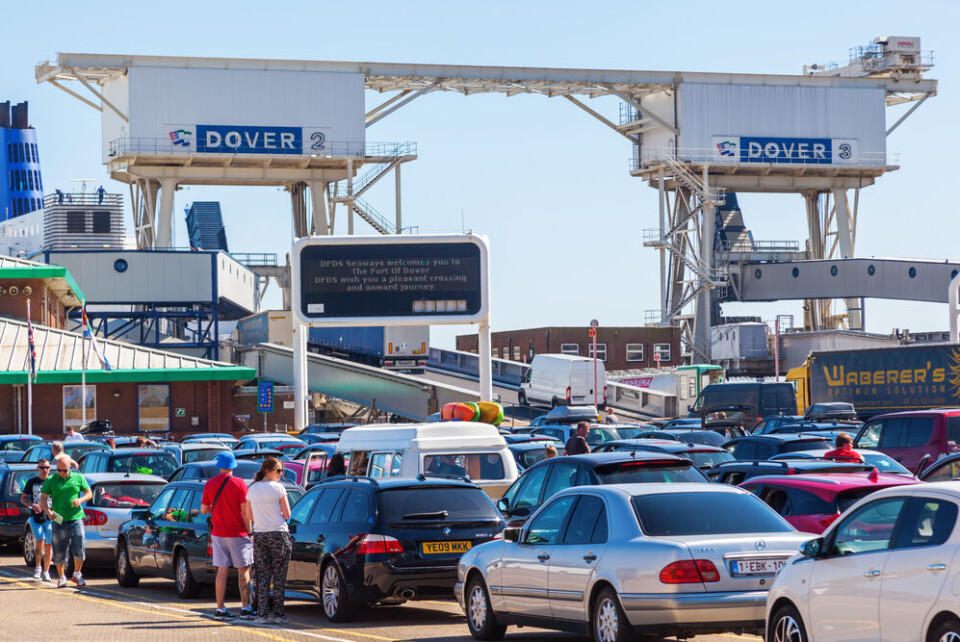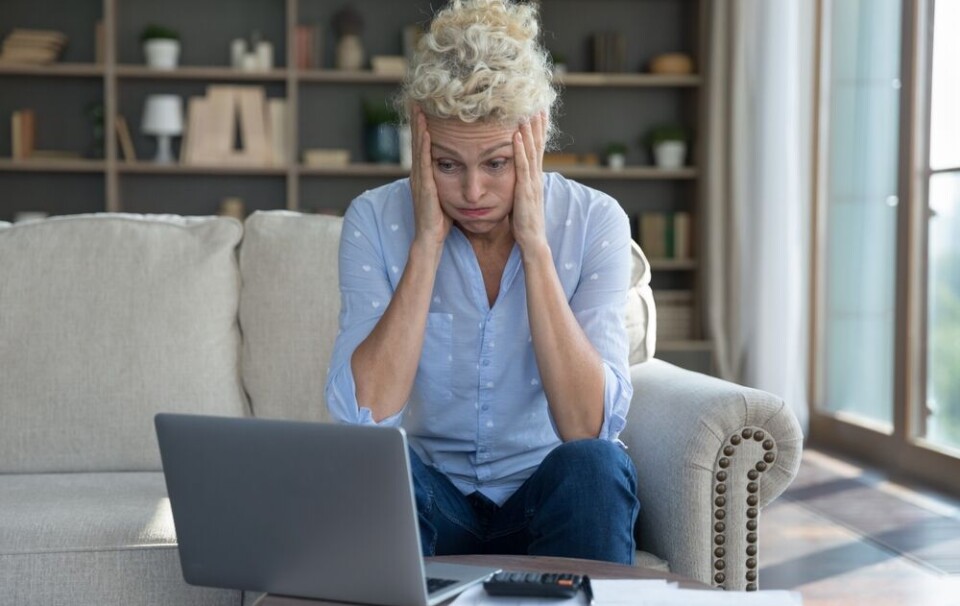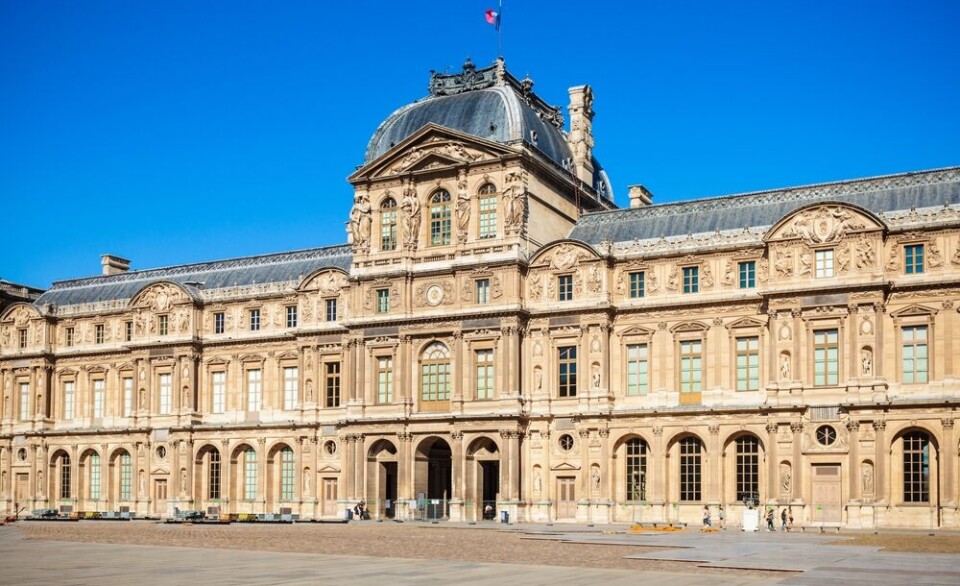-
Enedis warns of rising fake energy sales calls across France
Fraudsters posing as Enedis or its partners are targeting households, prompting daily scam reports to the electricity network operator
-
‘No time to react’: mini-tornado damages homes in Gironde, west France
Violent weather rips off roofs and uproots trees. Around 300 properties impacted
-
Immigrants now make up 11.3% of France’s population, new figures show
2.6 million (33% of the immigrant population) had obtained citizenship
French minister’s reaction to Dover: Don’t blame us for Brexit
Delays of up to six hours caused ministers to exchange pointed words yesterday with each side blaming the other, but traffic is now said to be ‘flowing normally’

The French transport minister has reiterated that “France is not responsible for Brexit” as long queues at Dover stretched into their third day – although an update this morning suggests traffic is now flowing.
An article in The Telegraph newspaper headlined “[Foreign secretary Liz] Truss tells France to fix holiday travel chaos” prompted minister Clément Beaune to explain that “the French authorities are working to check our borders and facilitate [the passing] of traffic as much as possible”.
He said: “I have discussed this with my counterpart Grant Shapps. But France is not responsible for Brexit.”
Les autorités françaises sont mobilisées pour contrôler nos frontières et faciliter le trafic autant que possible. J’ai échangé à ce sujet de manière constructive avec mon homologue @grantshapps 🇫🇷🇬🇧
— Clément Beaune (@CBeaune) July 23, 2022
Mais la France n’est pas responsable du #Brexit. pic.twitter.com/6FIBZ7RnKG
Vehicles reported having to wait several hours before being able to access the Port of Dover yesterday (Saturday, July 23), as the weekend was one of the first major holidaymaker departure days without Covid restrictions.
Ferry operator P&O Ferries warned customers that wait times for some services had reached six hours. Yesterday it said that the average wait had dropped closer to three.
#PODover Please be aware that there is heavy traffic at border control.If you're booked to travel today please allow at least 3-4hrs to clear the approach roads and security checks. Rest assured ,if you miss your sailing,you'll be on the first available once at check-in;
— P&O Ferries Travel Updates (@POferriesupdate) July 23, 2022
‘British holidays ruined’
In a statement, managing director of the port of Dover, Doug Bannister, blamed French authorities for "ruining" British holidays, and said that French officers had underestimated the number of French border police officers that would be required.
He said that it was “immensely frustrating” to be “let down” by a lack of resources at the French border. Yet, he did acknowledge that "in a post-Brexit environment", boarding delays would increase.
On the French side, prefect of the Hauts-de-France region, Georges-François Leclerc, admitted that authorities’ plans for Friday had been delayed due to a signalling incident in the Channel Tunnel and a traffic accident on the M20 motorway.
However, he denied that this was the main reason for the problems.
During a press conference in Lille yesterday, he said: “The entire system didn’t fall over just because we had one hour delay. The work has been done on the French side.”
Read more: French authorities say technical issue led to Dover staff shortages
He said that officers had been increased to 200, up from the 120 usually working during most summer weekends, and said that the problems were simply due to a huge increase in traffic. More than 9,000-10,000 vehicles are expected per day at peak times, rather than the 4,000-5,000 usually seen.
Mr Leclerc continued: “Last year we had Covid, this year we’re discovering Brexit. France is taking on its responsibilities, but it’s a responsibility also shared with the British.”
One of the issues is that, post-Brexit, an ID check is not enough to pass; passports (and potentially visas) must also be checked and stamped.
BREAKING: Foreign Secretary Liz Truss says disruption to travellers trying to cross the Channel to Europe is a result of French authorities 'not putting enough people on the border' to manage the queues.https://t.co/PAiZ4D1jU3
— Sky News (@SkyNews) July 23, 2022
📺 Sky 501, Virgin 602, Freeview 233 and YouTube pic.twitter.com/bGWDkrweWj
Ms Truss has also sparked controversy after claiming that the long waits are due to “French authorities not putting enough people on the border to manage the queues” and that she is “very clear that we need to see action from [the French] to resolve the terrible situation that people are facing”.
She dodged a question about Brexit being the cause of the issue, and said that it was instead due to “a lack of resources at the French border”.
However, Lucy Moreton, from the British border force union ISU, said that the issues were a “foreseeable” result of Brexit.
Ms Truss has also been accused of refusing to help the situation by declining to accept a £33million (€38.7million) plan that would have doubled the capacity of French border personnel.
Despite the issues, traffic is now said to be “flowing normally” at the port, according to the official Port of Dover Twitter account this morning (Sunday, July 24).
Port operations return to normal. Statement can be viewed on our website here: https://t.co/hiN0ea7mDU pic.twitter.com/5ztJeoT8sP
— Port of Dover (@Port_of_Dover) July 24, 2022
























